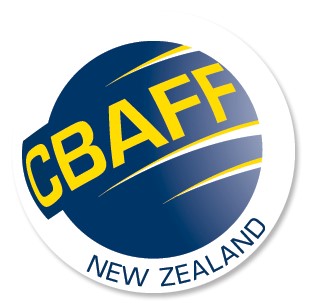Media Release
29 October 2020
New Zealand’s freight forwarders are urging retailers and other importers to get sea freight space booked as early as possible – in the face of a severe shortage of shipping capacity.
Rosemarie Dawson, Chief Executive Officer of the Customs Brokers and Freight Forwarders Federation of New Zealand (CBAFF), said the limitations around capacity for international sea freight into New Zealand and Australia was reaching critical levels.
With current demand for space up 20-25 per cent on the same period last year, the sector is expecting major challenges around moving freight and increased charges, particularly over the next two months, the peak Christmas season for the industry.
Ms Dawson said the situation was caused by a number of factors.
“This is a global problem with the supply chain under significant stress,” said Ms Dawson. “There has been a worldwide surge in consumer demand. Shipping companies did not anticipate this and significantly restricted capacity due to the fall in demand when China effectively shut down due to COVID-19. Lines are now at capacity, so it is very difficult to get space on ships coming out of China.
“There is also severe congestion in tranship ports, where freight from Europe is transferred onto a different vessel for the next leg of the journey. Singapore, Malaysia and Taiwan has containers backed up, waiting for space on vessels.”
There is also currently strike action at Australian ports and a lack of empty containers in key markets, including China and Australia. Ms Dawson said vessels are often arriving in New Zealand close together, creating lengthy delays before they can berth.
“New Zealand ports are working hard to address the congestion issues,” said Ms Dawson. “However, there are currently a number of conflicting unforeseen factors that have created a ‘perfect storm’ and this pressure is expected to continue for the rest of the year.”
Some shipping lines have now begun taking ‘circuit breaker action’, cutting services to New Zealand, to reduce delays in their own schedules – and have advised they are not planning on introducing additional services, citing a lack of available vessels and berthing windows.
“These factors, taken together, are leading to an increase in spot market rates – which are used to set pricing for shipping freight,” says Ms Dawson. “We expect these will continue to increase from this point.
“Additionally, the Australian industrial action is causing major delays in vessels leaving Sydney for New Zealand. As a result, shipping lines are starting to introduce surcharges. The only alternative to sea shipping is air freight and, with limited flights out of China, those costs are high.
“There are constraints that will affect the entire industry. Importers should provide as much lead time as possible for bookings – ideally more than three weeks in advance of sailings.
“Our members have told us that carriers have begun to enforce booking cut-off 14 days before sailings and they are now starting to see instances of carriers ceasing to accept bookings even for spot/market rate cargoes for November into December. Those conditions are expected to deteriorate further over the coming weeks.
“New Zealand ports are taking steps to increase resilience in the face of such challenges. Ports of Auckland, for instance, is hiring more staff, adding more capacity and is the first port in New Zealand to automate its container terminal.
“It is critical that all parts of the freight industry work together, to build more visibility and understanding of the pressure points in the supply chain and work out strategies to deal with such challenges in the future.”
ENDS
For further information, call Rosemarie Dawson, 021 656 781 or email .

RSS Facebook Email Linkedin